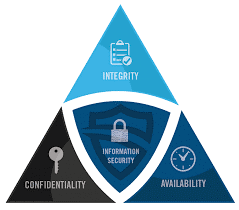In today’s digital-first economy, protecting sensitive business data is not just a technical necessity—it’s a competitive imperative. Two concepts are central to this effort: confidentiality and confidential computing. Together, they form a framework that helps businesses manage risk, ensure regulatory compliance, and strengthen stakeholder trust.
Confidentiality: The Foundation of Trust
Confidentiality refers to the principle of limiting data access to only authorized individuals or systems. It is fundamental to any organization’s data governance strategy. Whether managing customer records, proprietary product designs, or financial information, safeguarding confidentiality reduces exposure to data breaches and builds a secure brand reputation.
Key applications in business include:
- Access controls for internal systems and databases
- Encryption for customer and employee data
- Compliance with regulations like GDPR, HIPAA, and CCPA
Failing to uphold confidentiality can lead to reputational damage, financial penalties, and loss of customer trust.
Confidential Computing: Solving the “Data in Use” Challenge
While encryption at rest and in transit is now standard, many businesses overlook a critical gap: protecting data while it is being processed. This is where confidential computing delivers breakthrough value.
This emerging technology uses Trusted Execution Environments (TEEs) to isolate and encrypt active data within secure hardware-based enclaves. Even system administrators, cloud providers, or potential attackers with infrastructure access cannot view or tamper with the data.
Business Value of Confidential Computing:
- Mitigated risk of insider threats and supply chain attacks
- Secure cloud adoption without sacrificing control over sensitive workloads
- Confidence in collaborative analytics, enabling joint ventures and data-sharing without exposure
Why This Matters for Business Leaders
Confidential computing enables businesses to:
- Unlock sensitive use cases in AI, healthcare, finance, and legal operations
- Accelerate digital transformation by moving sensitive processes to the cloud with confidence
- Maintain compliance posture across jurisdictions with increasingly strict data protection laws
Organizations that embed confidential computing into their IT and security strategies are better equipped to protect intellectual property, innovate securely, and lead in trust-based markets.
Conclusion
Confidentiality and confidential computing are no longer optional—they are strategic enablers of secure, scalable, and trustworthy business operations. Companies that invest in these technologies not only protect their assets but also position themselves as forward-thinking leaders in an increasingly data-driven world.

